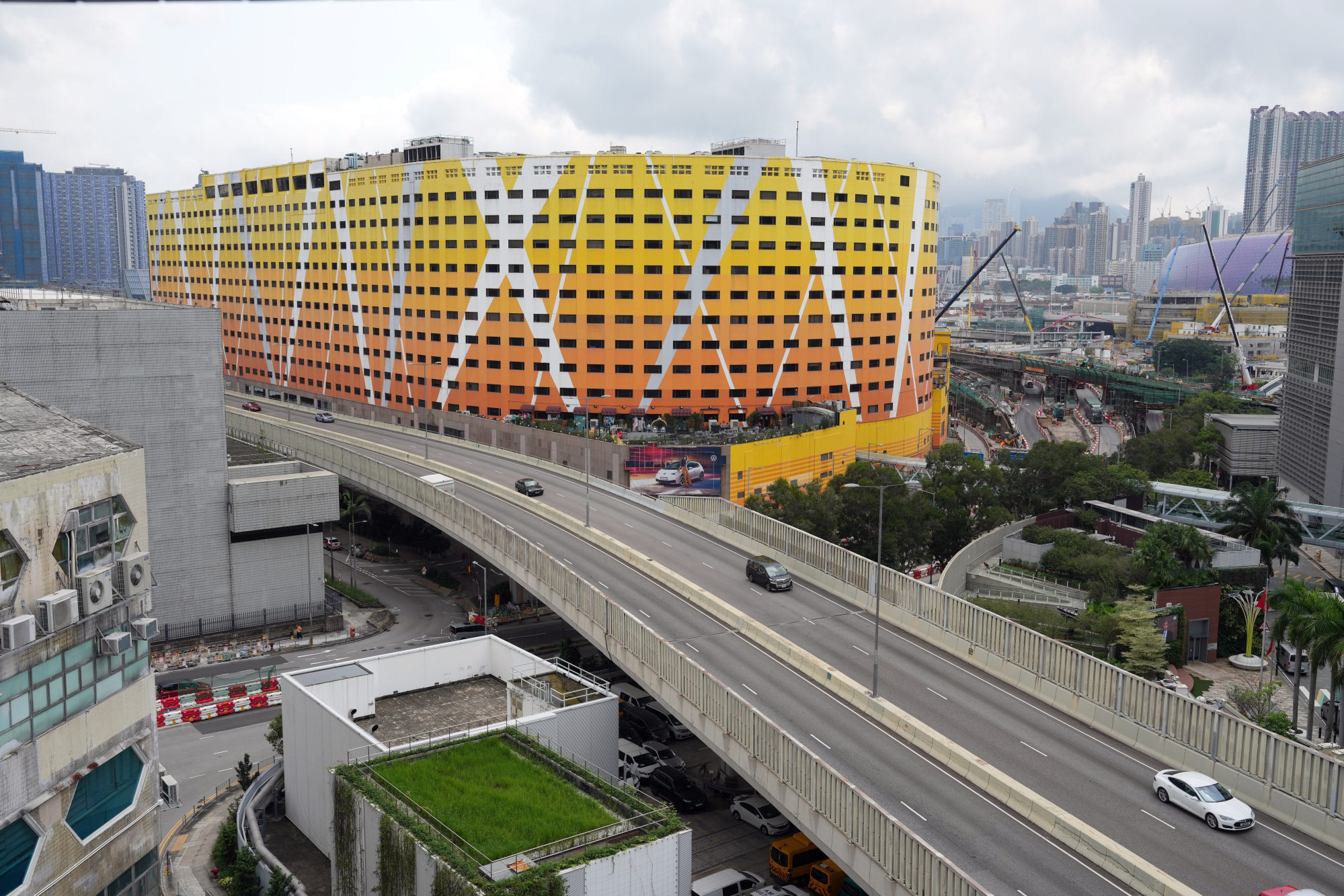
Hong Kong’s Kitec venue once hosted Mirror and transformed musical careers. So why is it closing down?
- After 28 years, curtain is to come down on Kowloon Bay International Trade and Exhibition Centre, with space to be used for an office redevelopment
- Kitec’s Star Hall was ideal size for rising acts, including boy band Mirror, as they progressed from smaller venues to bigger ones such as Hong Kong Coliseum and Asia-World Expo
The cha chaan teng may be modest, but the Hong Kong-style cafe at the Kowloon Bay International Trade and Exhibition Centre (Kitec) can count the members of Cantopop boy band sensation Mirror among its customers.
“They used to sit right here,” manager Ms Cheung, said as she pointed to two tables in front of the cashier just big enough for a dozen people.
“Fans were very dedicated and would queue up to three days ahead of shows here in the hopes of catching a glimpse of their idols. It is a shame that this is closing down.”
The summer will see the curtain come down on Kitec after 28 years, a site consisting of shops, restaurants and offices, as well as exhibition and event spaces.
A consortium led by Billion Development and Project Management will turn the venue into prime office space as part of a HK$20 billion (US$2.6 billion) redevelopment plan.

But music industry veterans said the venue, home to the 3,600-seat Star Hall, was more than just a concert space and that it was a perfect stepping stone for acts who wanted to get a leg up in the business.
“For the longest time, Hong Kong did not have venues of similar scale or capacity,” concert and music festival organiser Joshua Chan Yee-jing, said.
He added that the high costs involved in operating a venue in space-starved Hong Kong was a huge deterrent.
“From an artist’s point of view, one step of the ladder will be missing,” he said.
“Generally, you work your way up from the 600-seat Music Zone, also at Kitec, then you move on to MacPherson Stadium that could fit 1,500.
“After that, it’s Star Hall before the 12,500-seat Hong Kong Coliseum and 14,000-seat Asia-World Expo.”
Mirror, which formed in 2018, was a prime example of how the progression worked, Chan said.
The band’s first show was at Music Zone, which closed earlier this year, before it moved up to Star Hall, then the Coliseum in 2022 and finally Asia-World Expo as the group’ fame rocketed.
If a singer or a band was able to sell out a few shows at Star Hall, which indicated wider demand, their agents would almost immediately begin to book the Coliseum as the queue for performers could be a year long, Chan said.
He added the calculations included an estimate of how popular the act would be in 12 months’ time.
Losing Kitec made plotting that path more difficult, he argued, as the leap from a smaller venue to a much bigger one would mean more guesswork – and a greater business risk.
But Chan said Star Hall was not just a cradle for city musical talent, as he venue often hosted visiting artists who enjoyed A-list status abroad but had a smaller fan base in Hong Kong.
“It is important to have a concert venue in the heart of the city – that’s the edge of Star Hall. It’s convenient,” he added.

Chan said he was optimistic a similar-sized venue would open soon to fill the niche in the market given the strong demand, despite there being no immediate replacement for Star Hall.
Professor Anthony Fung Ying-him, the director of Chinese University’s Institute of Asia-Pacific Studies, whose research is focused on the creative and cultural industries, said the closure of Kitec also presented opportunities.
“If there are better alternatives in the future, with better sound systems, that might in fact benefit the rising stars,” Fung said.
He added the sound system set-up at the multipurpose Star Hall often meant organisers had to take extra measures to ensure the music would sound its best.
But he agreed Hong Kong needed a medium-sized venue and highlighted other options for concert venues in the city.
“A good example is the piece of land in West Kowloon that played host to the music festival Clockenflap, Fung said. “Hong Kong didn’t have spaces for outdoor concerts in the past, but they’re now increasingly common.”
He added many cities had venues not specifically built for concerts but which could be adapted for them.
Fung said Hong Kong Stadium, which hosted sporting events, could also accommodate music events.
“That is very common and that’s the direction I’d expect Hong Kong to take,” he added.
Fung said the government had invested in many new building projects where concerts could be held, including the West Kowloon Cultural District and the Kai Tak Sports Park, as authorities worked to boost the economy through support for the cultural and creative industries.
But Chan said Star Hall would hold a special place in the collective memory of Hong Kong music fans.
“Whether it was a concert or a show, it was a very specific thing that took place at a specific time at a specific place, and this has carried the emotions and memories of many,” he added.
“So whether you were a regular or have only been to one concert, I am sure everyone will remember this place.”

